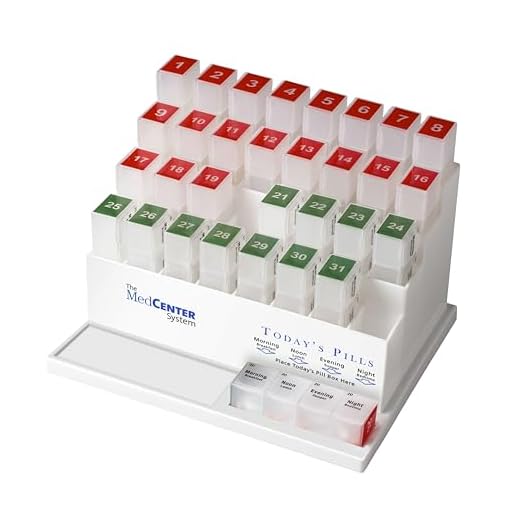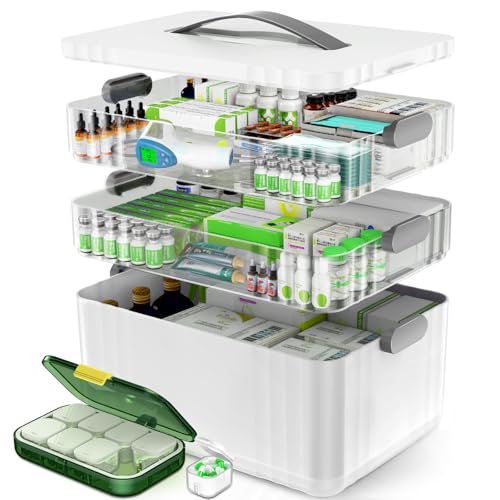




Storing medications in a traveler’s checked baggage is generally acceptable, but there are key precautions to consider. Always ensure that all medications are clearly labeled with your name and the prescribing physician’s information.
It’s advisable to keep a copy of your prescription and a doctor’s note in your carry-on, particularly for any controlled substances. If traveling internationally, familiarize yourself with the legal regulations regarding medications at your destination, as some substances may be prohibited or require special documentation.
Check the temperature requirements for your medications. While most prescriptions can tolerate cooler environments, certain medications may need to be kept at specific temperatures. Using insulated containers can help deter damage during transit.
Be proactive in contacting your airline for any specific policies they may have regarding pharmaceutical items. Keeping all necessary medications organized and secure will simplify your travel experience.
Packing Medications in Checked Baggage
It is generally acceptable to transport medications in your checked baggage. However, specific guidelines should be followed for safety and compliance with regulations.
Consider these recommendations:
- Original Containers: Keep medications in their original packaging to avoid confusion and facilitate identification.
- Documentation: Carry a copy of your prescription or a doctor’s note to prove the necessity of your medications. This is helpful in case of inspection.
- Labeling: Clearly label any medication, especially those that may look like common items, to prevent misunderstandings during inspections.
- Quantity Limitations: Transport only the medications required for your trip. Excessive quantities may raise suspicions.
- Temperature Concerns: Be mindful of medications that require specific temperature control. Consider using insulated bags or asking the airline about temperature management.
Check the specific policies of the airline, as different carriers may have varying rules. Additionally, consider regulations of the destination country, as laws regarding pharmaceutical substances can differ significantly.
In unexpected situations, keep essential medications in your carry-on for immediate access. This precaution ensures they remain secure and available when needed most.
Understanding Airline Regulations for Medications
Airlines typically require that all pharmaceuticals be accompanied by a prescription label or a letter from a healthcare professional. This ensures that the contents are verified and authorized for personal use. It is advisable to keep a copy of your prescription with the medication at all times.
Types of Allowable Medications
Most airlines permit both solid and liquid forms of therapeutic substances, provided they are properly labeled. Liquid formulations exceeding the standard volume limits must be declared at security checkpoints. Always check specific airline guidelines, as there may be variations in restrictions.
Security Screening Procedures
During security checks, medications may require separate screening. It’s prudent to declare any pharmaceuticals to security personnel beforehand to avoid delays. Packaging in original containers or with pharmacy labels simplifies this process and minimizes complications.
Packaging Tips for Prescription Medications
Secure all medications in their original containers, clearly labeled with the name and dosage. This minimizes confusion and facilitates identification during security checks.
Container Recommendations
Opt for pill organizers, but ensure they are clearly labeled and include necessary information. Use water-resistant bags for added protection against spills or leaks. If traveling internationally, carry a copy of the prescription or a doctor’s note to avoid complications.
Dosage Considerations
Prepare a sufficient supply for your entire trip, plus a few extras in case of delays. For long journeys, consider breakable medications’ stability in varying temperatures. Keep essential items and those with specific storage requirements in mind when organizing.
Stash a list of medications with dosages and instructions in your personal item to easily access them if needed. Familiarize yourself with any regulations specific to your destination, ensuring seamless compliance with local laws.
Storage Conditions for Medications During Travel

Maintain medications at appropriate temperatures to ensure their efficacy. Avoid exposing them to extreme heat or cold. Ideal storage temperatures range between 20°C to 25°C (68°F to 77°F).
Temperature Considerations
- Avoid direct sunlight, as it can lead to overheating.
- For hot climates, keep medications in insulated bags, away from windows and ventilation systems.
- In cold environments, consider thermal pouches to protect against freezing temperatures.
Environment & Humidity Management
- Store medications in a dry place to prevent moisture exposure. Humidity can compromise pills’ effectiveness.
- Airtight containers can serve to protect drugs from humidity during travel.
Always carry a sufficient quantity of your required medications, factoring in travel delays. Maintaining an accessible supply ensures adherence to your health regimen.
For additional insights and interesting content, explore best quotes from the umbrella academy.
Documenting Your Prescriptions for Travel
Obtain and carry a detailed letter from your healthcare provider that outlines the required medications. This document should include your name, the dosage, and the purpose of each medication. Having this letter can help in case of security checks or if any issues arise during your trip.
In addition, ensure that all medication labels are clear and contain your name. If traveling internationally, consider translating your documents and labels into the local language to avoid misunderstandings.
Keep copies of your prescriptions, ideally in both paper and digital formats. This can be beneficial for emergency situations or in case of loss. It’s also wise to document any allergies or medical conditions that could be relevant during your travels.
For travelers with multiple medications, create an organized list detailing dosage frequencies to prevent missed doses. Furthermore, always carry essential medications in your carry-on, as mishaps with checked items can occur.
Staying prepared reduces stress and ensures that health needs are addressed while on the move. If interested in maintaining equipment for your home, consider researching the best pressure washer for old patio for optimal results.
Insurance Considerations for Lost or Damaged Medications

Always verify insurance policies before traveling to understand coverage for lost or damaged medications. Many plans may have provisions for reimbursement, but specifics can vary significantly. Check the fine print regarding coverage limits and requirements for documentation.
Documentation Required for Claims
To file a claim for lost or destroyed medications, gather necessary paperwork. This includes receipts, a letter from a healthcare provider detailing the prescription, and any documentation from the airline or security personnel regarding the loss. Having these readily available streamlines the claims process.
Policy Limits and Out-of-Pocket Expenses
Review policy limits related to medication claims. Some insurance providers may not fully cover the cost, leaving travelers responsible for a portion. Be prepared to pay out-of-pocket for any replacements that exceed coverage or deductible amounts. Comparing different policies can help determine the best option for travel-related medication coverage.
Alternatives to Packing Medications in Checked Baggage
Consider carrying necessary medications in your personal item or handbag instead. This practice minimizes risk of loss and simplifies access during the trip.
Utilizing Pill Organizers
Pill organizers can help maintain your medication regimen while traveling. They allow for efficient sorting of daily doses and can be easily transported, ensuring compliance with your treatment plan.
Exploring Medication Delivery Services
Investigate local pharmacies at your destination that offer medication delivery services. Pre-arranging prescription refills can prevent running out of necessary drugs while away from home.
| Option | Description | Advantages |
|---|---|---|
| Personal Item | Keep medications in a small bag or backpack. | Easy access, reduced risk of loss. |
| Pill Organizer | Organized storage for daily doses. | Helps maintain schedule, portable. |
| Delivery Services | Local pharmacy delivers refills. | Convenience, ensures access to medications. |
Consult healthcare professionals for any concerns regarding medication management while traveling. They can recommend alternatives tailored to specific needs, enhancing safety and assurance during travel.







